Categories
Business

Aviation Industry Risk Analysis in Epidemics
Bharat Mishra
Aviation Industry Risk Analysis in Epidemics examines how the COVID-19 pandemic has transformed our lives, especially in terms of transportation. If you're keen to understand how airlines operate during pandemics, this book is for you. Following IATA guidelines and top aviation strategies, we outline methods and strategies to enhance your understanding of aviation in pandemic times. Even if you're new to aviation or pandemic concepts, we explain everything from the basics, covering how they are regulated and managed. We explore how airlines handle far-off transportation during pandemics, whether for personal, business, or tourism purposes. The book also provides tactics for adhering to pandemic regulations and improving aviation activities during such times. Questions like what aviation and pandemics entail, decision-making in aviation, prevention guidelines, and ensuring safety while traveling during pandemics are thoroughly answered. This book introduces a range of methods, technologies, and tools in aviation, aiming to prevent the spread of pandemics. Suitable for novices and experts, leaders and followers, aviation professionals, or enthusiasts looking to enhance their knowledge.

A Practical Guide to Paying off Your Mortgage Early
Lien Luu, Sukanlaya Sawang
Owning a property is a dream for many people and borrowing from banks is often essential to achieve this. However, having a mortgage can cause real anxiety because of the latent fear of losing our home if we cannot keep up with mortgage payments. Traditionally, homeowners repay their debt over 25 years, but high house prices have made it necessary to increase the term up to 40 years to make monthly payments affordable. Spreading the debt over a longer period of time not only means that borrowers have to pay more interest, but they are also exposed to other risks such as potential interest rate rises and changes in personal circumstances affecting their mortgage eligibility. These can lead to financial worries, financial stress and reduced well-being. There are few practical guides available to show borrowers how to manage their mortgage debt more effectively, and how to repay their mortgage quickly so that they are debt-free. This book seeks to empower consumers, young and old, by providing a roadmap to help borrowers achieve financial security through planning for the future, insuring their income and setting up an emergency fund. It also outlines simple strategies for an early repayment of debt, including paying off the capital, making extra payments and monitoring their mortgage debt. In doing so, it aims to help readers improve their general well-being, enhance their financial security, reduce their financial worries, and eliminate their ‘mortgage insomnia’.

AI and Digital Technology for Oil and Gas Fields
Niladri Kumar Mitra
The book essentially covers the growing role of AI in the oil and gas industry, including digital technology in the exploration phase to customer sales service along with a cloud-based digital storage of reservoir simulation data for modeling. It initiates with the description of AI systems and their roles within the oil and gas business including agent-based systems, impact of industrial IoT on business models, and ethics of robotics in AI implementation. It discusses reliability of operation leading to reduction of operating costs by localizing control functions, remote monitoring, and supervision. Features of this book are as This book is aimed at professionals in petroleum and chemical engineering, technology, and engineering management.
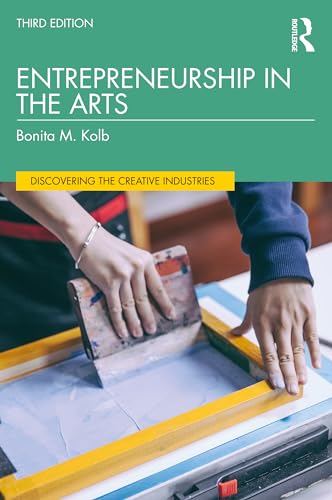
Entrepreneurship in the Arts
Bonita M. Kolb
The need for artists, musicians, actors, singers, designers and other creative individuals to understand basic business concepts so they can successfully pursue their chosen creative profession has only grown since the publication of this textbook, now in its third edition. This popular book teaches business concepts in a way that is relevant to the way that creative students learn. Providing an understanding of the fundamental skills of entrepreneurship, this book enables creatives to launch new businesses, run for-profit creative industries or manage nonprofit cultural organizations. The book leads the student through the entrepreneurial process starting with finding the right customers to pricing, distribution and promotion. This latest edition has been updated to account for significant changes in the creative industries that have been accelerated by the use of AI in the production of creative products, the challenge of pricing products within a range acceptable to consumers while accounting for the rising cost of production and the increasing need to use social listening skills and technology as a basis of consumer research. Weaving practical advice from successful creatives with pedagogical features such as ‘Questions to Consider’, ‘Tasks to Complete’, and ‘Visualization Exercises’, this textbook continues to be essential reading for creative students.
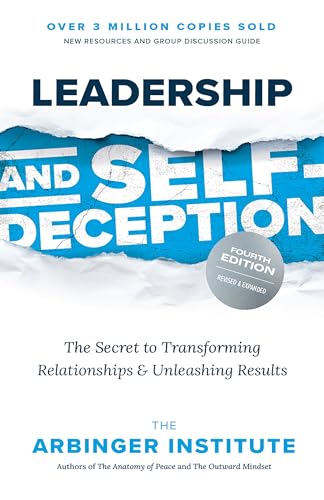
Leadership and Self-Deception, Fourth Edition: The Secret to Transforming Relationships and Unleashing Results
The Arbinger Institute
With almost 3 million copies sold worldwide, this new edition of an enduring classic is the definitive guide to dramatically improve leadership effectiveness, transform personal and professional relationships, and unleash organizational results. Significantly revised throughout, this edition includes updated stories, brand new content, and a practical group discussion guide. Over two decades since first being published, Leadership and Self-Deception continues to help readers discover and overcome the persistent lies that are at the heart of the people-related dysfunction that plagues relationships and hinders organizational results. Told through an engaging story, this book reveals the ways we blind ourselves to our true motivations and unwittingly sabotage our efforts to achieve success and rebuild broken relationships. Completely rewritten throughout, this fourth edition features important updates: A broader cast of characters who resonate with a wide and diverse audience Updated stories and examples that help readers immediately apply these timeless concepts to the modern workplace An individual study and group discussion guide to facilitate personal and team discoveries Practical guides to apply the tools on a personal, team, and organization-wide level Explore the ideas that have helped millions of people and thousands of organizations sustainably transform relationships and results.
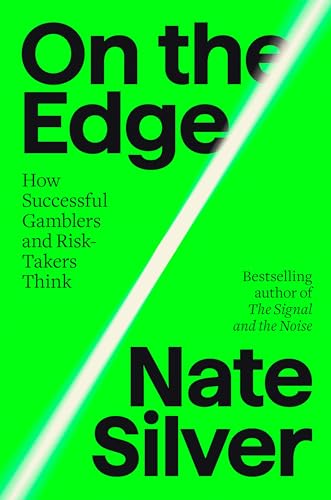
On the Edge: The Art of Risking Everything
Nate Silver
From the New York Times bestselling author of The Signal and the Noise, the definitive guide to our era of risk—and the players raising the stakes In the bestselling The Signal and the Noise, Nate Silver showed how forecasting would define the age of Big Data. Now, in this timely and riveting new book, Silver investigates "The River," or those whose mastery of risk allows them to shape—and dominate—so much of modern life. These professional risk takers—poker players and hedge fund managers, crypto true-believers and blue-chip art collectors—can teach us much about navigating the uncertainty of the 21st century. By embedding within these worlds, Silver offers insight into a range of issues that affect us all, from the frontiers of finance to the future of AI.The River has increasing amounts of wealth and power in our society, and understanding their mindset—including the flaws in their thinking—is key to understanding what drives technology and the global economy today. There are certain commonalities in this otherwise diverse high tolerance for risk; appreciation of uncertainty; affinity for numbers; skill at de-coupling; self-reliance and a distrust of the conventional wisdom. For the River, complexity is baked in, and the work is how to navigate it, without going beyond the pale.Taking us behind-the-scenes from casinos to venture capital firms to meetings of the effective altruism movement, On the Edge is a deeply-reported, all-access journey into a hidden world of powerbrokers and risk takers.
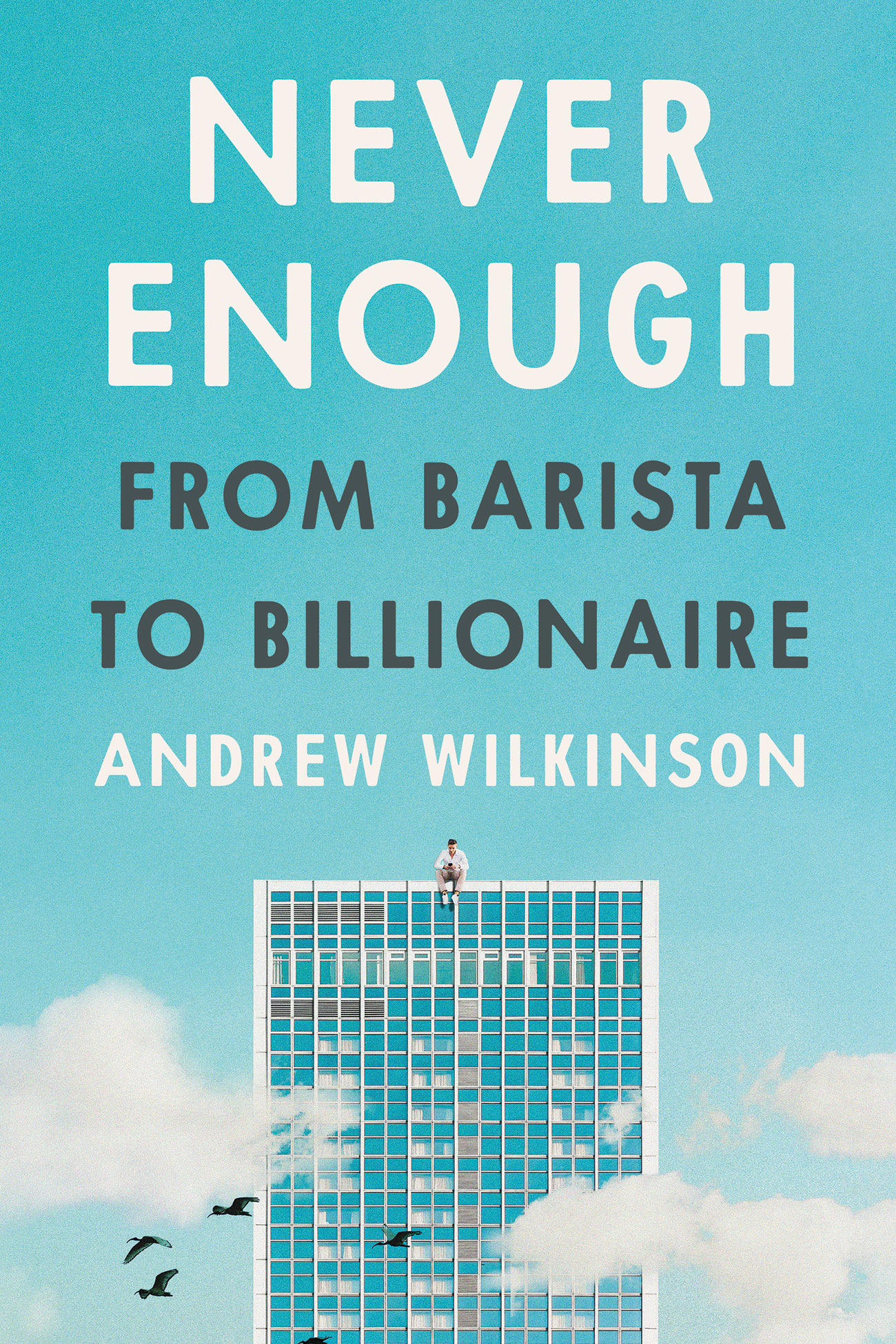
Never Enough: Why You Don't Want to Be a Billionaire
Andrew Wilkinson
Andrew Wilkinson, touted as the Warren Buffett of tech, pulls back the curtain on the lives of the ultra-rich in this memoir outlining Wilkinson’s rapid rise from barista to successful entrepreneur. Readers will get fresh insights into building a successful business and a surprising, first-person account of what it’s actually like to become a billionaire. By the age of thirty-five, Andrew Wilkinson had built a business worth over a billion dollars, but his path to success was anything but a straight line. Never Enough shares both the lessons Wilkinson has learned as well as the many mistakes made on the road to wealth—some of which cost him money, happiness, and important relationships. Taking a “no secrets” approach to the story billionaires rarely tell, Wilkinson is unwaveringly honest about some of the unexpected downsides of wealth. Money’s toxic effect on personal relationships, how the lifestyles of the rich and famous aren’t all they’re cracked up to be, and how competition with peers leaves everyone—even billionaires—feeling like they never have enough. In this rare and deeply honest glimpse into the life of a billionaire, Wilkinson examines not only his journey to nine zeros but also what comes after that pinnacled number—something, as Wilkinson has come to realize, that money can’t buy.
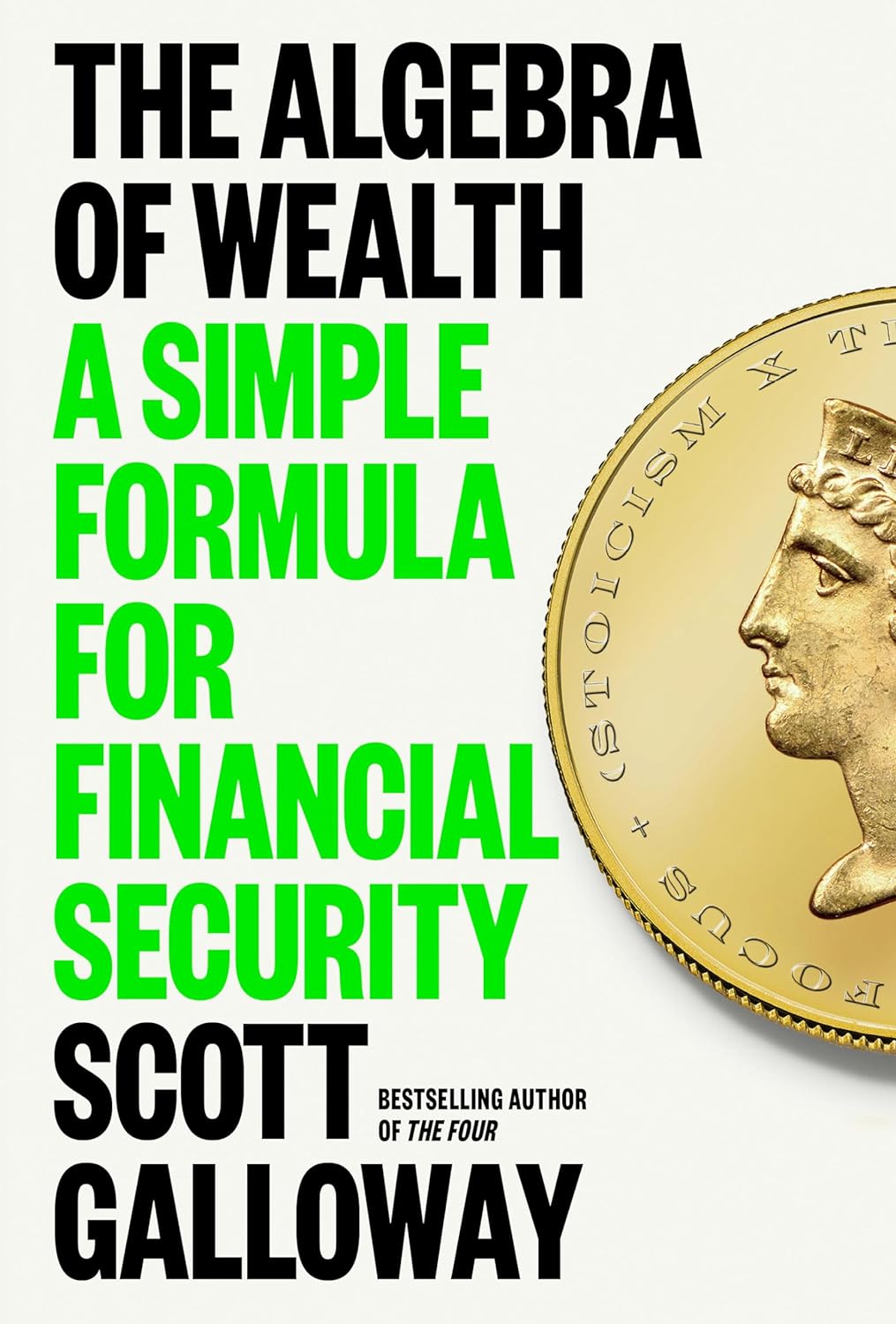
The Algebra of Wealth: A Simple Formula for Financial Security
Scott Galloway
AN INSTANT #1 NEW YORK TIMES BESTSELLER A must-have guide to optimizing your life for wealth and success, from bestselling author, NYU professor, and co-host of the Pivot podcast Scott Galloway. Today's workers have more opportunities and mobility than any generation before. They also face unprecedented challenges, including inflation, labor and housing shortages, and climate volatility. Even the notion of retirement is undergoing a profound rethink, as our life spans extend and our relationship with work evolves. In this environment, the tried-and-true financial advice our parents followed is no longer enough. It's time for a new playbook. In The Algebra of Wealth, Galloway lays bare the rules of financial success in today's economy. In his characteristic unvarnished, no-BS style, he explains what you need to know in order to better your chances for economic security no matter what. You’ll How to find and follow your talent, not your passion, when making career decisionsHow to ride and optimize big economic waves (hard market dynamics always trump individual achievement)What small steps you can take that pay big returns later, including diversification and tax planningHow stoicism can help you minimize spending and develop better financial habits Bursting with practical, game-changing advice from one of the world’s most popular business school professors, The Algebra of Wealth is the practical guidebook you need to win today’s wealth game. , Brimming with wise, game-changing advice from one of the world’s most popular business school professors, The Algebra of Wealth offers a powerful framework for making the most of what opportunities come your way.
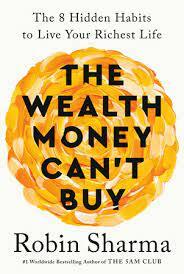
The Wealth Money Can't Buy: The 8 Hidden Habits to Live Your Richest Life
Robin S. Sharma
NEW YORK TIMES BESTSELLER • A groundbreaking book redefining success to show readers how they can create truly abundant and fulfilling lives by following Sharma’s 8 Forms of Wealth model—from the #1 international bestselling author, speaker, and leadership expert “Robin Sharma has been an amazing mentor to me. He is a major influencer of our time.”—DEEPAK CHOPRA, author of Abundance Real wealth is so much more than cash in the bank, flashy cars in the driveway and luxury vacations on exotic islands. Too many financially prosperous people are surprisingly poor when it comes to the things that truly matter for a life of happiness, vitality, and serenity. Society has sold us a version of success that has left too many people feeling empty, frustrated, and filled with regret. Fortunately, there is a much better way to live. In The Wealth Money Can’t Buy, you will discover a life-altering system that will help you lead your richest life before it’s too late. You will learn a framework based on the eight hidden habits used by authentically rich people and gain a methodology to master your destiny. Open this book and allow a trusted mentor to offer you valuable insights, • how to become a “perfect moment” creator • why your choice of mate is 90% of your joy • the power of “The 10,000 Dinners Question” • hidden habits of authentically wealthy people • the brilliance of “going ghost” for a year Legendary personal growth expert Robin Sharma has mentored billionaires, superstar athletes, and heads of state, teaching them The 8 Forms of Wealth Model with transformational results. Now, you will learn it, too, and create the lifetime of your highest dreams. Full of practical tools and transformational tactics, The Wealth Money Can’t Buy offers a life-changing philosophy and methodology for enjoying a genuinely rich life—filled with personal power, unusual authenticity, exceptionally fulfilling work, and a lifestyle that will make you feel that fortune has finally smiled on you.
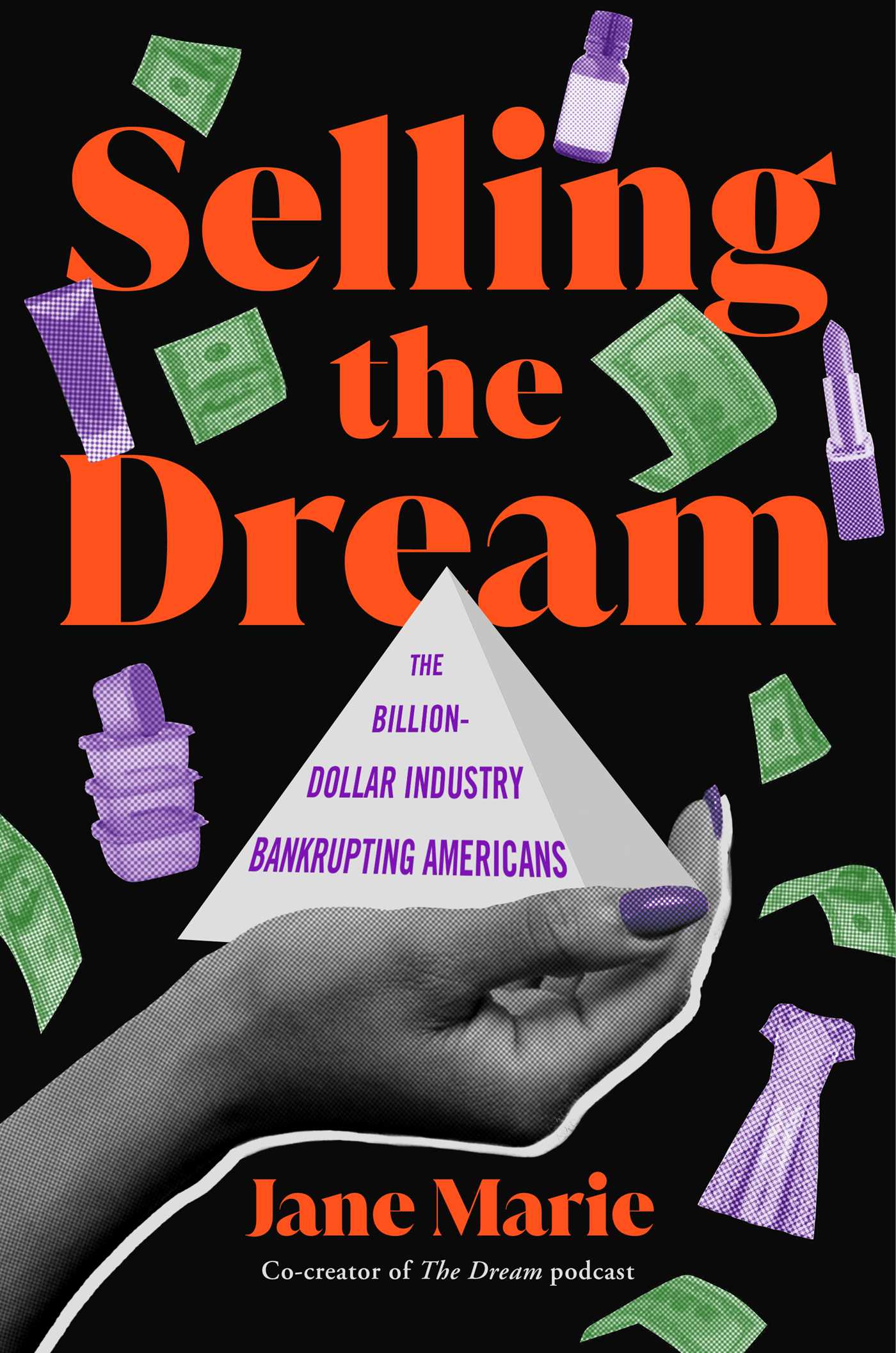
Selling the Dream: The Billion-Dollar Industry Bankrupting Americans
Jane Marie
Peabody and Emmy Award–winning journalist Jane Marie expands on her popular podcast The Dream to expose the scourge of multilevel marketing schemes and how they have profited off the evisceration of the American working class. We’ve all heard of Amway, Mary Kay, Tupperware, and LuLaRoe, but few know the nefarious way they and countless other multilevel marketing (MLM) companies prey on desperate Americans struggling to make ends meet. When factories close, stalwart industries shutter, and blue-collar opportunities evaporate, MLMs are there, ready to pounce on the crumbling American Dream. MLMs thrive in rural areas and on military bases, targeting women with promises of being their own boss and millions of dollars in easy income—even at the risk of their entire life savings. But the vast majority—99.7%—of those who join an MLM make no money or lose money, and wind up stuck with inventory they can’t sell to recoup their losses. Featuring in-depth reporting and intimate research, Selling the Dream reveals how these companies—often owned by political and corporate elites, such as the Devos and the Van Andels families—have made a windfall in profit off of the desperation of the American working class.
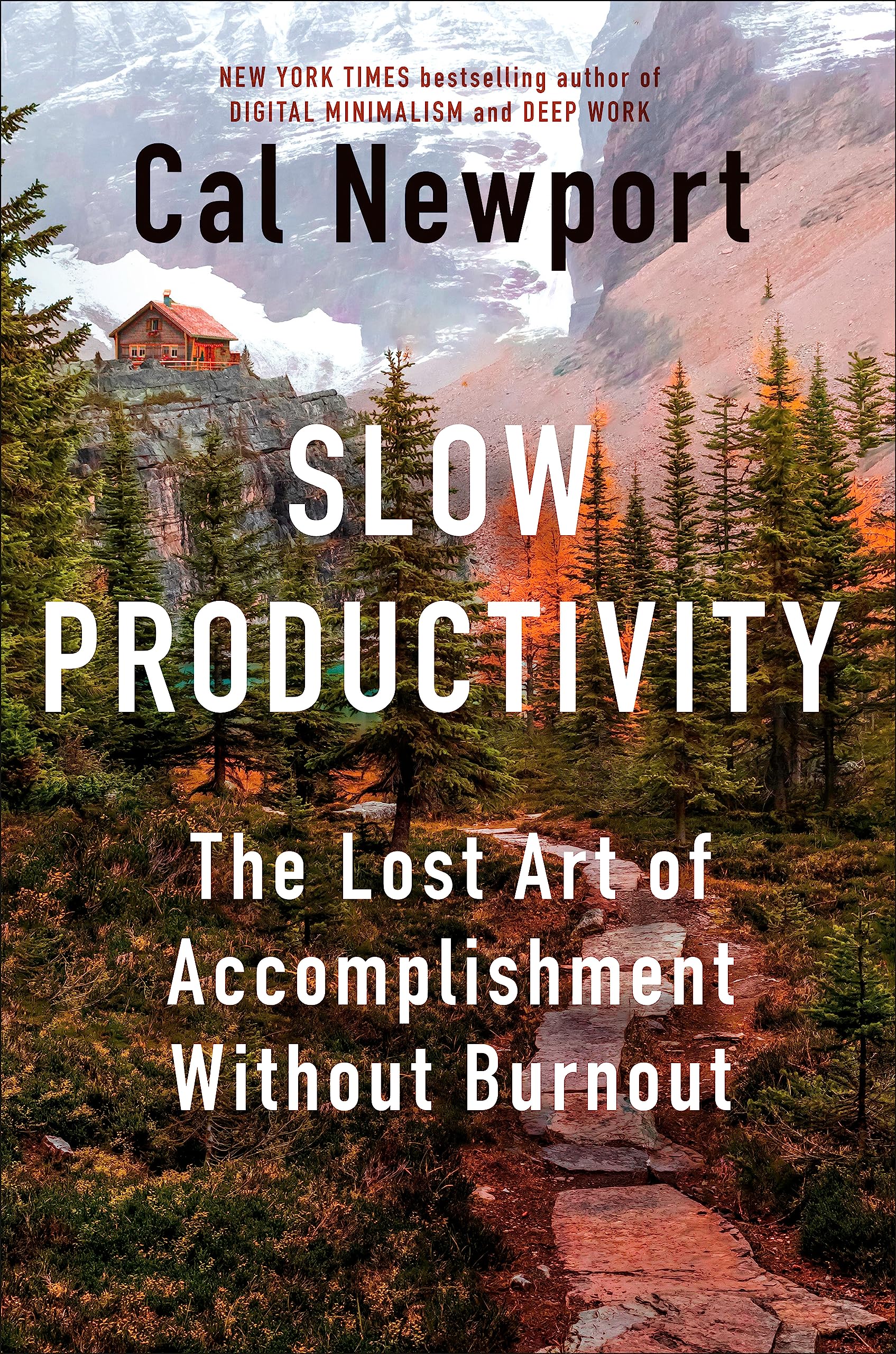
Slow Productivity: The Lost Art of Accomplishment Without Burnout
Cal Newport
Do fewer things. Work at a natural pace. Obsess over quality. From the New York Times bestselling author of Digital Minimalism and Deep Work, a groundbreaking philosophy for pursuing meaningful accomplishment while avoiding overload. Our current definition of “productivity” is broken. It pushes us to treat busyness as a proxy for useful effort, leading to impossibly lengthy task lists and ceaseless meetings. We’re overwhelmed by all we have to do and on the edge of burnout, left to decide between giving into soul-sapping hustle culture or rejecting ambition altogether. But are these really our only choices? Long before the arrival of pinging inboxes and clogged schedules, history’s most creative and impactful philosophers, scientists, artists, and writers mastered the art of producing valuable work with staying power. In this timely and provocative book, Cal Newport harnesses the wisdom of these traditional knowledge workers to radically transform our modern jobs. Drawing from deep research on the habits and mindsets of a varied cast of storied thinkers—from Galileo and Isaac Newton, to Jane Austen and Georgia O’Keefe—Newport lays out the key principles of “slow productivity,” a more sustainable alternative to the aimless overwhelm that defines our current moment. Combining cultural criticism with systematic pragmatism, Newport deconstructs the absurdities inherent in standard notions of productivity, and then provides step-by-step advice for workers to replace them with a slower, more humane alternative. From the aggressive rethinking of workload management, to introducing seasonal variation, to shifting your performance toward long-term quality, Slow Productivity provides a roadmap for escaping overload and arriving instead at a more timeless approach to pursuing meaningful accomplishment. The world of work is due for a new revolution. Slow productivity is exactly what we need.
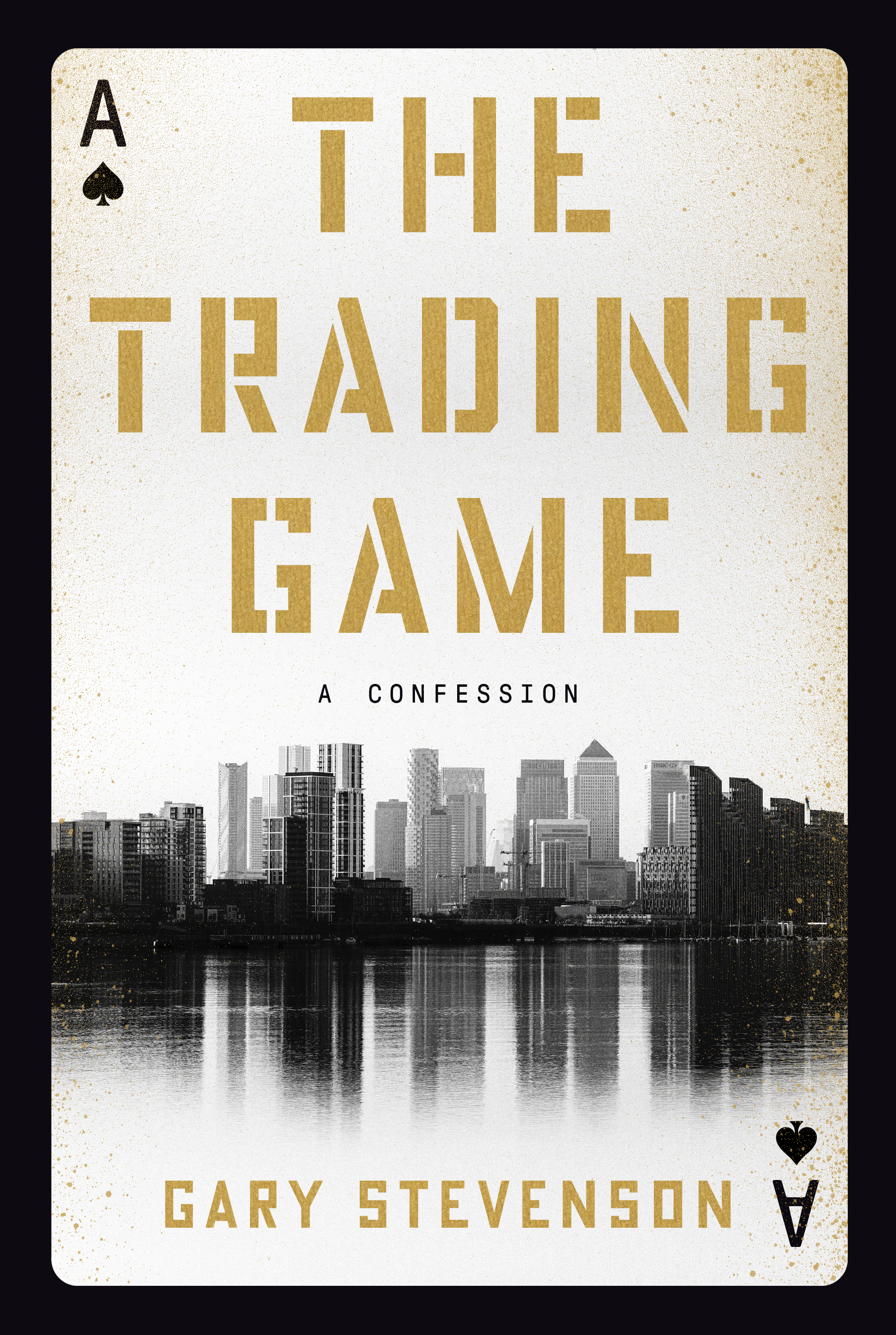
The Trading Game: A Confession
Gary Stevenson
A vivid, blistering memoir that takes readers inside the high-stakes drama and hubris of the trading floor, a rags-to-riches tale of Citibank’s one-time most profitable trader, and why he gave it all up—a Liar’s Poker for a new generation “If you were gonna rob a bank, and you saw the vault door there, left open, what would you do? Would you wait around?” Ever since he was a kid, kicking broken soccer balls on the streets of East London in the shadow of Canary Wharf, Gary Stevenson dreamed of something bigger. And he was good at numbers. At the London School of Economics, Gary, wearing tracksuits and sneakers, shocked his posh classmates by winning a competition called “The Trading Game.” The a golden ticket to a new life, as the youngest trader at Citibank. A place where you could make more money than you’d ever imagined. Where your colleagues are dysfunctional geniuses and insecure bullies, yet they start to feel like family. Where against the odds you become the bank’s most profitable trader, closing deals worth nearly a trillion dollars. A day . Soon you are dreaming of numbers in your sleep—and then you stop sleeping at all. What happens when winning starts to feel like losing? It’s 2008 and now you have a front-row seat to the global financial crisis. A time when the easiest way to make money is to bet on millions becoming poorer—like the very people you grew up with. The economy is slipping off a precipice, and your own sanity starts slipping with it. You want to stop, but you can’t. Because nobody ever leaves . Would you stick, or quit? Even if it meant risking everything? This is an outrageous, unvarnished, white-knuckle journey to the dark heart of an intoxicating world—from someone who survived the game and then blew it all wide open.
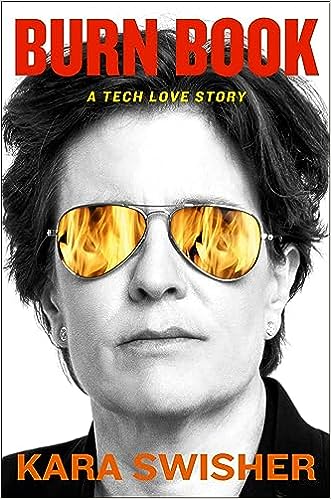
Burn Book: A Tech Love Story
Kara Swisher
From award-winning journalist Kara Swisher comes a witty, scathing, but fair accounting of the tech industry and its founders who wanted to change the world but broke it instead. Part memoir, part history, Burn Book is a necessary chronicle of tech’s most powerful players. This is the inside story we’ve all been waiting for about modern Silicon Valley and the biggest boom in wealth creation in the history of the world. When tech titans crowed that they would “move fast and break things,” Kara Swisher was moving faster and breaking news. While covering the explosion of the digital sector in the early 1990s, she developed a long track record of digging up and reporting the facts about this new world order. Her consistent scoops drove one CEO to accuse her of “listening in the heating ducts” and prompted Facebook’s Sheryl Sandberg to once observe: “It is a constant joke in the Valley when people write memos for them to say, ‘I hope Kara never sees this.’” While still in college, Swisher got her start at The Washington Post, where she became one of the few people in journalism interested in covering the nascent Internet. She went on to work for The Wall Street Journal, joining with Walt Mossberg to start the groundbreaking D: All Things Digital conference, as well as pioneering tech news sites. Swisher has interviewed everyone who matters in tech over three decades, right when they presided over an explosion of world-changing innovation that has both helped and hurt our world. Steve Jobs, Jeff Bezos, Elon Musk, Bill Gates, Sheryl Sandberg, Bob Iger, Larry Page and Sergey Brin, Meg Whitman, Peter Thiel, Sam Altman, and Mark Zuckerberg are just a few whom Swisher made sweat—figuratively and, in Zuckerberg’s case, literally. Despite the damage she chronicles, Swisher remains optimistic about tech’s potential to help solve problems and not just create them. She calls upon the industry to make better, more thoughtful choices, even as a new set of powerful AI tools are poised to change the world yet again. At its heart, this book is a love story to, for, and about tech from someone who knows it better than anyone.

Poor Charlie’s Almanack: The Essential Wit and Wisdom of Charles T. Munger
Charles T. Munger
From the legendary vice-chairman of Berkshire Hathaway, lessons in investment strategy, philanthropy, and living a rational and ethical life. “A timeless classic that will change how you approach life. There is a billion-dollar education inside this book.” —Shane Parrish, founder of Syrus Partners and Farnam Street “Spend each day trying to be a little wiser than you were when you woke up,” Charles T. Munger advises in Poor Charlie’s Almanack . Originally published in 2005, this compendium of eleven talks delivered by the legendary Berkshire Hathaway vice-chairman between 1986 and 2007 has become a touchstone for a generation of investors and entrepreneurs seeking to absorb the enduring wit and wisdom of one of the great minds of the 20th and 21st centuries. Edited by Peter D. Kaufman, chairman and CEO of Glenair and longtime friend of Charlie Munger—whom he calls “this generation’s answer to Benjamin Franklin”—this abridged Stripe Press edition of Poor Charlie’s Almanack features a brand-new foreword by Stripe cofounder John Collison. Poor Charlie’s Almanack draws on Munger’s encyclopedic knowledge of business, finance, history, philosophy, physics, and ethics—and more besides—to introduce the latticework of mental models that underpin his rational and rigorous approach to life, learning, and decision-making. Delivered with Munger’s characteristic sharp wit and rhetorical flair, it is an essential volume for any reader seeking to go to bed a little wiser than when they woke up.
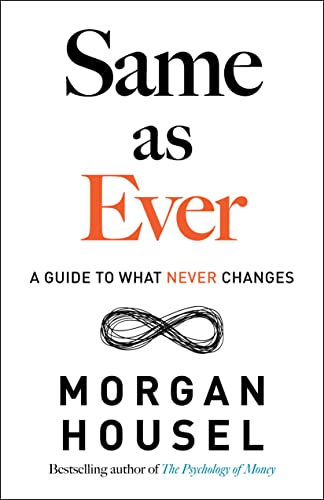
Same as Ever: A Guide to What Never Changes
Morgan Housel
“Want to understand the changing world? Start with what stays the same. That’s the amazing conclusion of Morgan Housel’s fascinating, useful, and highly-entertaining book.” — Arthur C. Brooks, Professor, Harvard Kennedy School and Harvard Business School, and #1 New York Times bestselling author From the author of the international blockbuster, THE PSYCHOLOGY OF MONEY, a powerful new tool to unlock one of life’s most challenging puzzles. Every investment plan under the sun is, at best, an informed speculation of what may happen in the future, based on a systematic extrapolation from the known past. Same as Ever reverses the process, inviting us to identify the many things that never, ever change. With his usual elan, Morgan Housel presents a master class on optimizing risk, seizing opportunity, and living your best life. Through a sequence of engaging stories and pithy examples, he shows how we can use our newfound grasp of the unchanging to see around corners, not by squinting harder through the uncertain landscape of the future, but by looking backwards, being more broad-sighted, and focusing instead on what is permanently true. By doing so, we may better anticipate the big stuff, and achieve the greatest success, not merely financial comforts, but most importantly, a life well lived.
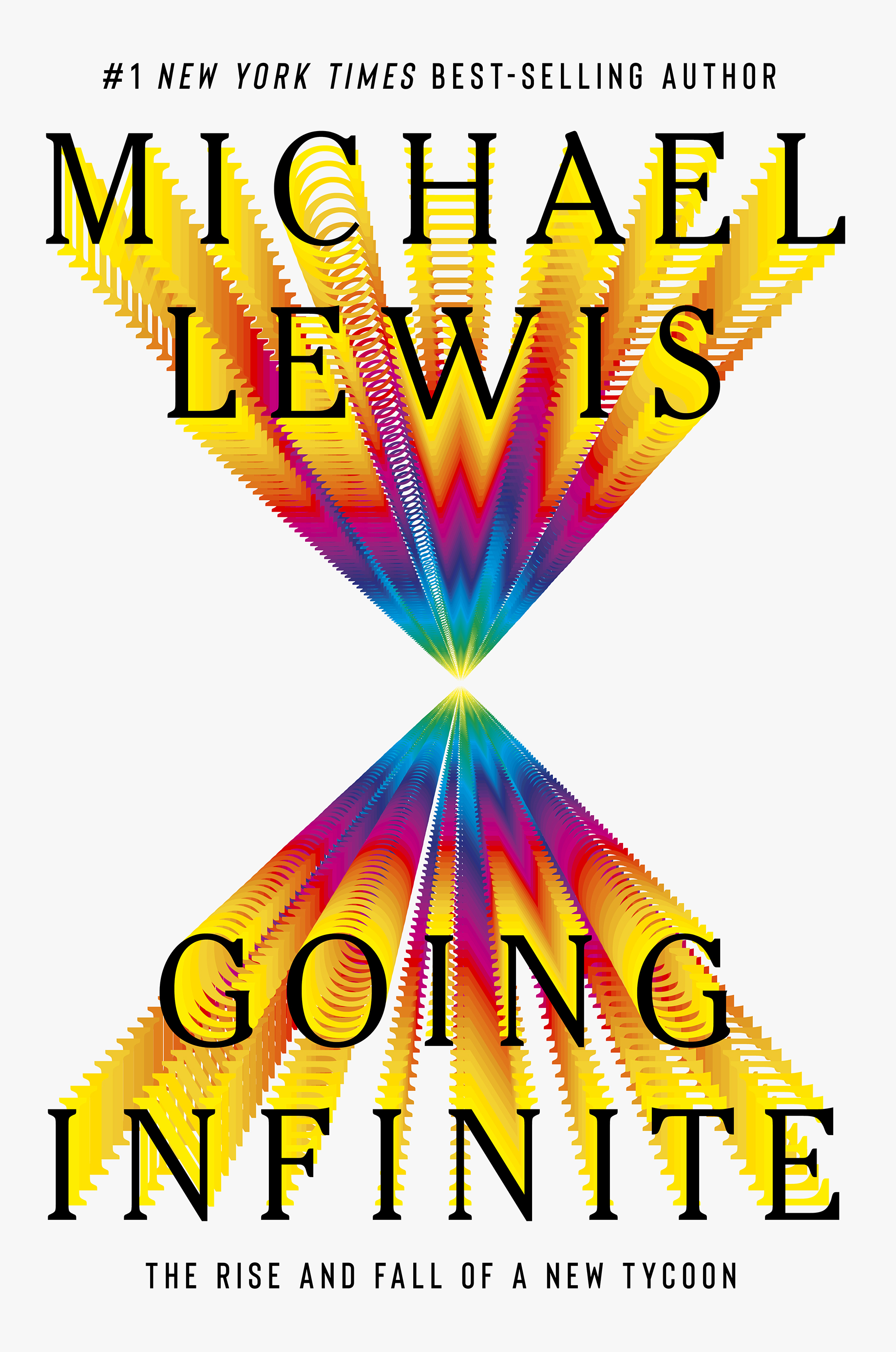
Going Infinite: The Rise and Fall of a New Tycoon
Michael Lewis
From the #1 best-selling author of The Big Short and Flash Boys, the story of FTX’s spectacular collapse and the enigmatic founder at its center. When Michael Lewis first met him, Sam Bankman-Fried was the world’s youngest billionaire and crypto’s Gatsby. CEOs, celebrities, and leaders of small countries all vied for his time and cash after he catapulted, practically overnight, onto the Forbes billionaire list. Who was this rumpled guy in cargo shorts and limp white socks, whose eyes twitched across Zoom meetings as he played video games on the side? In Going Infinite Lewis sets out to answer this question, taking readers into the mind of Bankman-Fried, whose rise and fall offers an education in high-frequency trading, cryptocurrencies, philanthropy, bankruptcy, and the justice system. Both psychological portrait and financial roller-coaster ride, Going Infinite is Michael Lewis at the top of his game, tracing the mind-bending trajectory of a character who never liked the rules and was allowed to live by his own―until it all came undone.
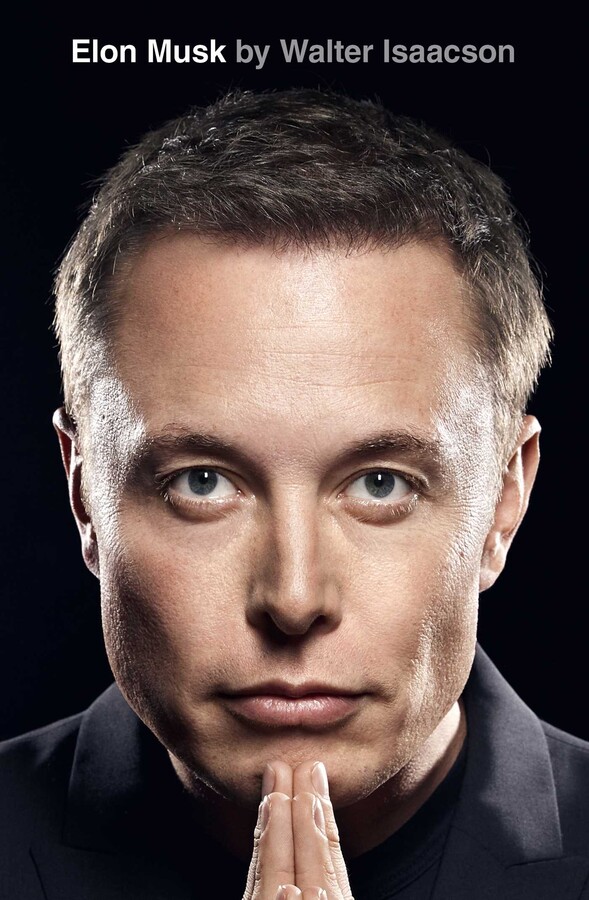
Elon Musk
Walter Isaacson
From the author of Steve Jobs and other bestselling biographies, this is the astonishingly intimate story of the most fascinating and controversial innovator of our era—a rule-breaking visionary who helped to lead the world into the era of electric vehicles, private space exploration, and artificial intelligence. Oh, and took over Twitter. When Elon Musk was a kid in South Africa, he was regularly beaten by bullies. One day a group pushed him down some concrete steps and kicked him until his face was a swollen ball of flesh. He was in the hospital for a week. But the physical scars were minor compared to the emotional ones inflicted by his father, an engineer, rogue, and charismatic fantasist. His father’s impact on his psyche would linger. He developed into a tough yet vulnerable man-child, prone to abrupt Jekyll-and-Hyde mood swings, with an exceedingly high tolerance for risk, a craving for drama, an epic sense of mission, and a maniacal intensity that was callous and at times destructive. At the beginning of 2022—after a year marked by SpaceX launching thirty-one rockets into orbit, Tesla selling a million cars, and him becoming the richest man on earth—Musk spoke ruefully about his compulsion to stir up dramas. “I need to shift my mindset away from being in crisis mode, which it has been for about fourteen years now, or arguably most of my life,” he said. It was a wistful comment, not a New Year’s resolution. Even as he said it, he was secretly buying up shares of Twitter, the world’s ultimate playground. Over the years, whenever he was in a dark place, his mind went back to being bullied on the playground. Now he had the chance to own the playground. For two years, Isaacson shadowed Musk, attended his meetings, walked his factories with him, and spent hours interviewing him, his family, friends, coworkers, and adversaries. The result is the revealing inside story, filled with amazing tales of triumphs and turmoil, that addresses the are the demons that drive Musk also what it takes to drive innovation and progress?
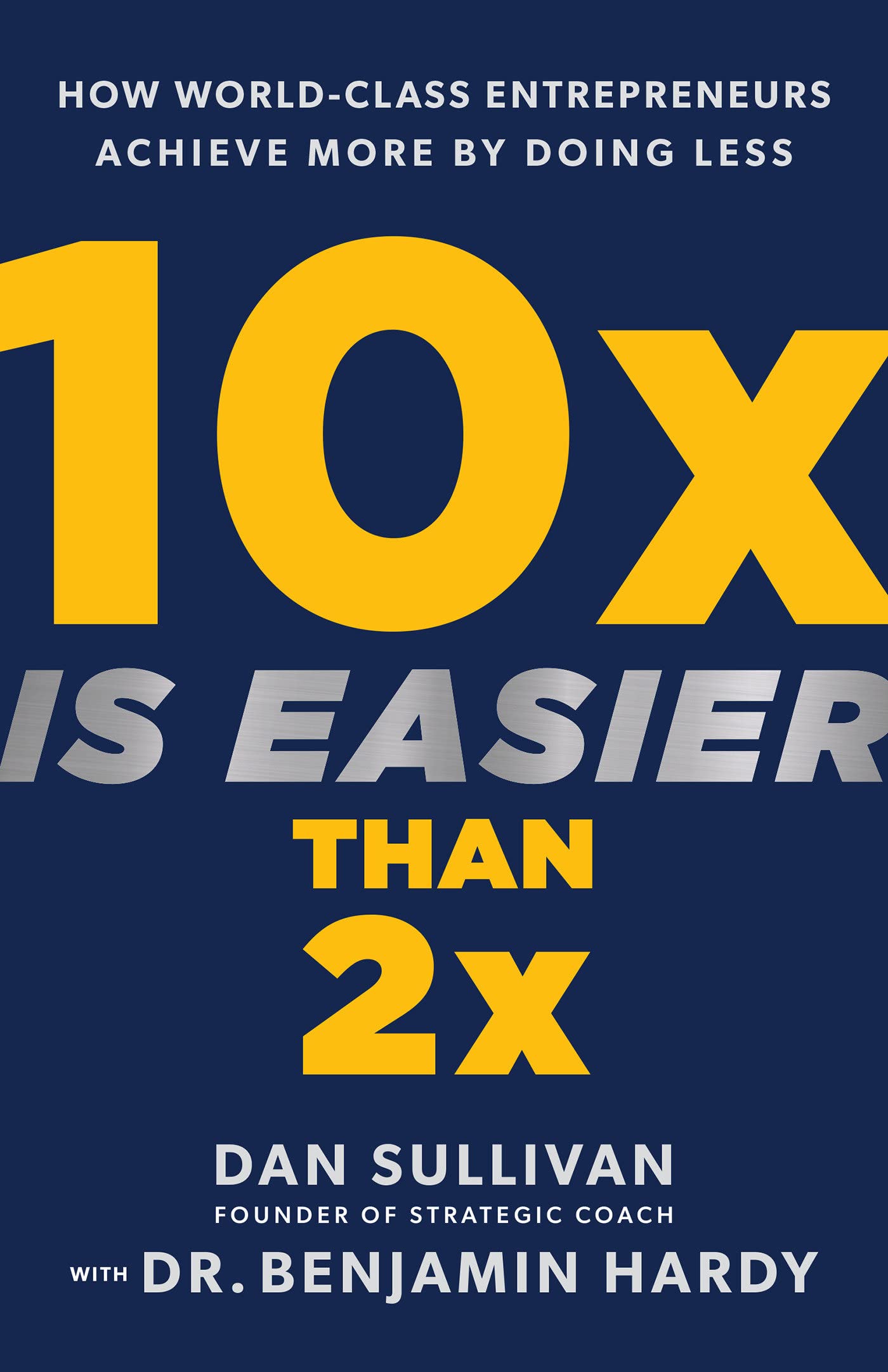
10x Is Easier Than 2x: How World-Class Entrepreneurs Achieve More by Doing Less
Dan Sullivan, Benjamin P. Hardy
Expanding upon one of his high-level foundational teachings: Strategic Coach co-founder Dan Sullivan explains why achieving 10X growth is easier than going for 2X growth. Dan Sullivan, the world's leading coach for highly successful entrepreneurs, wants you to know that achieving 10X growth is exponentially easier than striving for 2X growth. Most find this idea confusing at first because simply imagining 10X growth causes them to think they need to do 10X more work to achieve it. However, being a 10X entrepreneur is nothing like what most people think. 10X is not the outcome; it's a counterintuitive process you can apply every time you want exponential growth in your life and business. To make 10X possible, you must focus on expanding what Dan defines as your four most important freedoms—time, money, relationship, and purpose. As your time becomes 10X more valuable, you increasingly multiply the money you earn both in terms of amount and profitable satisfaction. As money becomes a tool you can increasingly access with greater ease, you will engage with a growing number of other freedom-motivated individuals. As both your professional and personal life fills up with 10X more unique and collaborative relationships, you will realize that your most powerful purposes in all areas become 10X more lasting and positive for everyone involved. You will be impressed by what your life has become, and the meaning and impact you're having. 10X is fundamentally about quality vs quantity, and the quality of your freedoms determines the results you achieve.
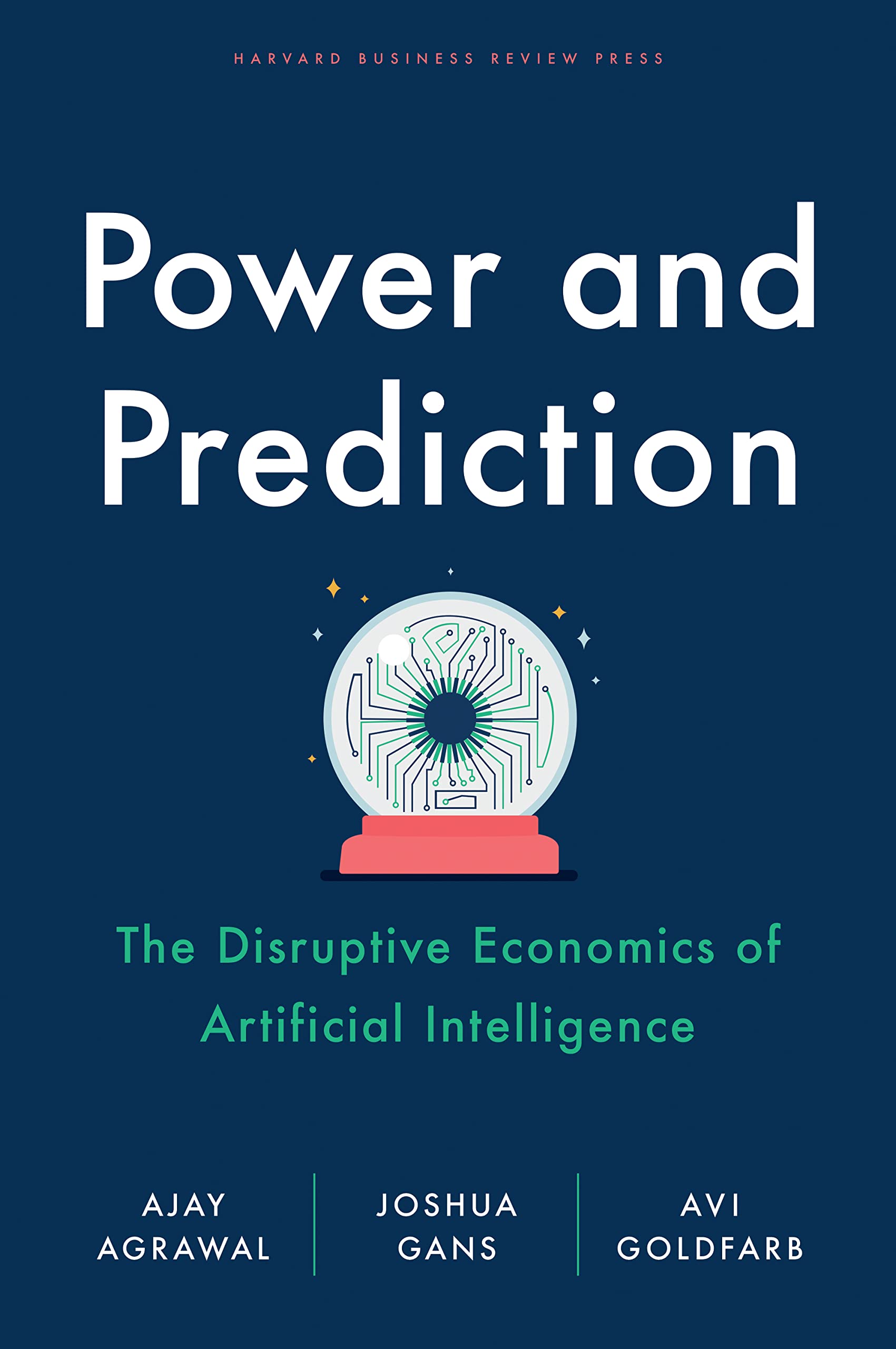
Power and Prediction: The Disruptive Economics of Artificial Intelligence
Ajay Agrawal, Joshua Gans, Avi Goldfarb
Disruption resulting from the proliferation of AI is coming. The authors of the bestselling Prediction Machines describe what you can do to prepare. Banking and finance, pharmaceuticals, automotive, medical technology, retail. Artificial intelligence (AI) has made its way into many industries around the world. But the truth is, it has just begun its odyssey toward cheaper, better, and faster predictions to drive strategic business decisions--powering and accelerating business. When prediction is taken to the max, industries transform. The disruption that comes with such transformation is yet to be felt--but it is coming. How do businesses prepare? In their bestselling first book, Prediction Machines, eminent economists Ajay Agrawal, Joshua Gans, and Avi Goldfarb explained the simple yet game-changing economics of AI. Now, in Power and Prediction, they go further to reveal AI as a prediction technology directly impacting decision-making and to teach businesses how to identify disruptive opportunities and threats resulting from AI. Their exhaustive study of new developments in artificial intelligence and the past history of how technologies have disrupted industries highlights the striking phase we are now in: after witnessing the power of this new technology and before its widespread adoption--what they call "the Between Times." While there continue to be important opportunities for businesses, there are also threats of disruption. As prediction machines improve, old ways of doing things will be upended. Also, the process by which AI filters into the many systems involved in application is very uneven. That process will have winners and losers. How can businesses leverage, or protect, their positions? Filled with illuminating insights, rich examples, and practical advice, Power and Prediction is the must-read guide for any business leader or policy maker on how to make the coming AI disruptions work for you rather than against you.
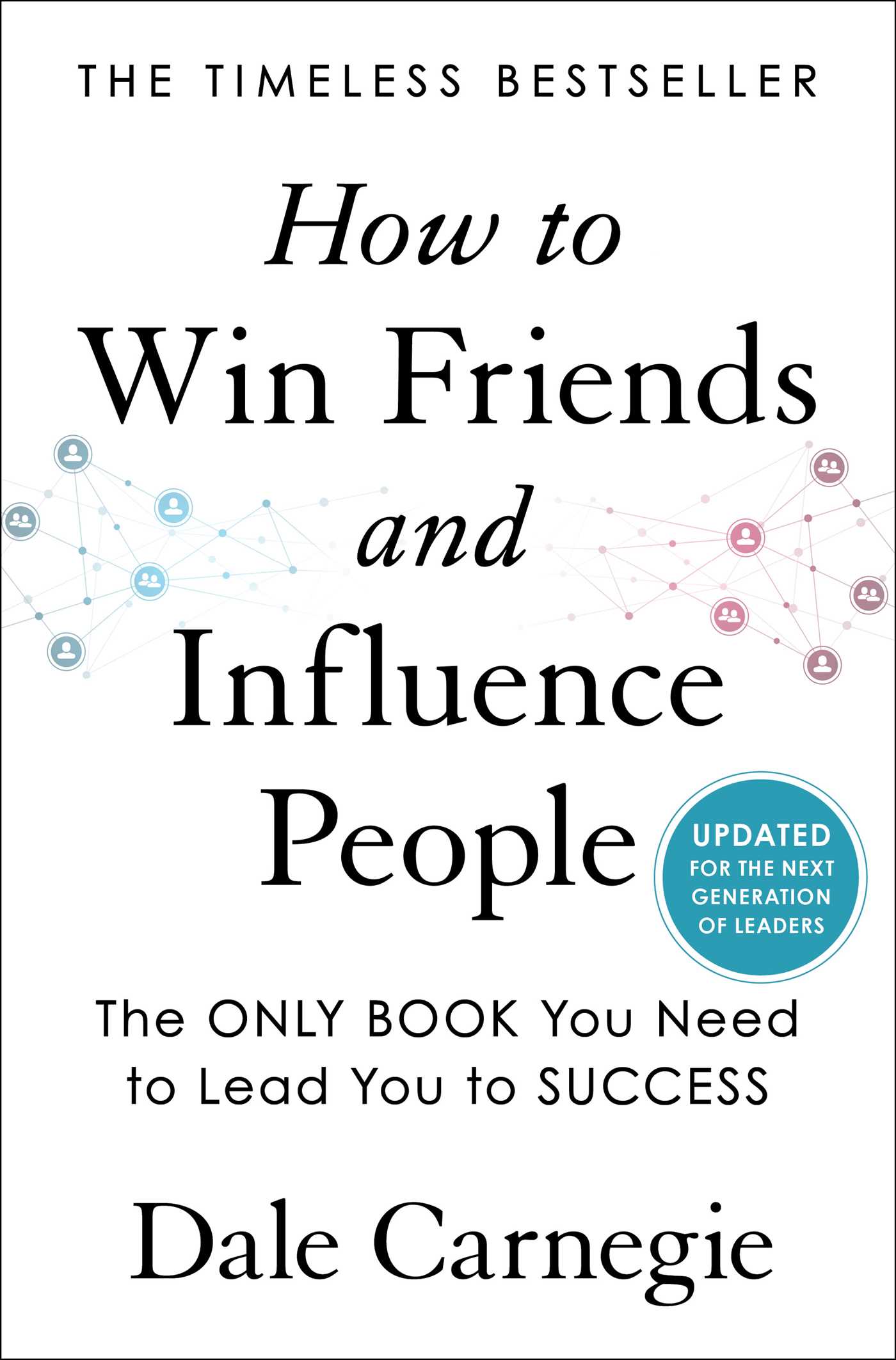
How to Win Friends and Influence People: Updated For the Next Generation of Leaders
Dale Carnegie
Updated for the first time in more than forty years, Dale Carnegie’s timeless bestseller How to Win Friends and Influence People —a classic that has improved and transformed the personal and professional lives of millions. This new edition of the most influential self-help book of the last century has been updated under the care of Dale’s daughter, Donna, introducing changes that keep the book fresh for today’s readers, with priceless material restored from the original 1936 text. One of the best-known motivational guides in history, Dale Carnegie’s groundbreaking publication has sold tens of millions of copies, been translated into almost every known written language, and has helped countless people succeed. Carnegie’s rock-solid, experience-tested advice has remained relevant for generations because he addresses timeless questions about the art of getting along with people. How to Win Friends and Influence People teaches you: -How to communicate effectively -How to make people like you -How to increase your ability to get things done -How to get others to see your side -How to become a more effective leader -How to successfully navigate almost any social situation -And so much more! How to Win Friends and Influence People is a historic bestseller for one simple reason: Its crucial life lessons, conveyed through engaging storytelling, have shown readers how to become who they wish to be. With the newly updated version of this classic, that’s as true now as ever.
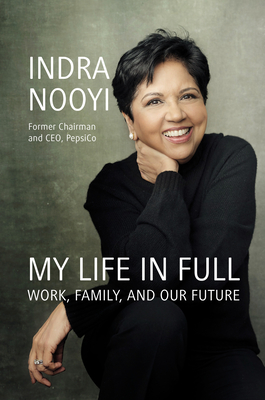
My Life in Full: Work, Family, and Our Future
Indra Nooyi
A New York Times Bestseller An intimate and powerful memoir by the trailblazing former CEO of PepsiCo For a dozen years as one of the world’s most admired CEOs, Indra Nooyi redefined what it means to be an exceptional leader. The first woman of color and immigrant to run a Fortune 50 company — and one of the foremost strategic thinkers of our time — she transformed PepsiCo with a unique vision, a vigorous pursuit of excellence, and a deep sense of purpose. Now, in a rich memoir brimming with grace, grit, and good humor, My Life in Full offers a firsthand view of Nooyi’s legendary career and the sacrifices it so often demanded. Nooyi takes us through the events that shaped her, from her childhood and early education in 1960s India, to the Yale School of Management, to her rise as a corporate consultant and strategist who soon ascended into the most senior executive ranks. The book offers an inside look at PepsiCo, and Nooyi’s thinking as she steered the iconic American company toward healthier products and reinvented its environmental profile, despite resistance at every turn. For the first time and in raw detail, Nooyi also lays bare the difficulties that came with managing her demanding job with a growing family, and what she learned along the way. She makes a clear, actionable, urgent call for business and government to prioritize the care ecosystem, paid leave and work flexibility, and a convincing argument for how improving company and community support for young family builders will unleash the economy’s full potential. Generous, authoritative, and grounded in lived experience, My Life in Full is the story of an extraordinary leader’s life, a moving tribute to the relationships that created it, and a blueprint for 21st century prosperity.
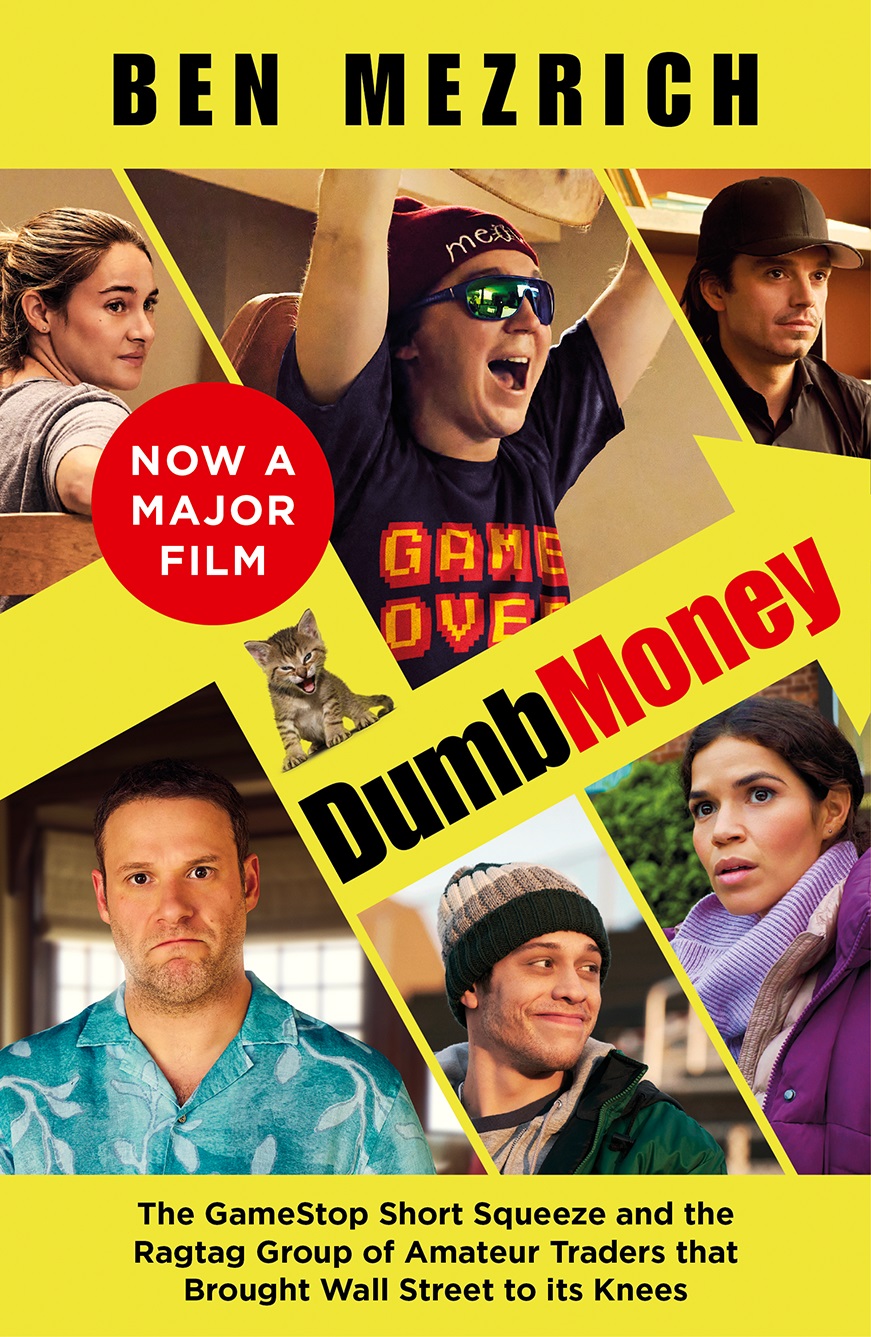
Dumb Money: GameStop VS Wall Street
Ben Mezrich
THE ANTISOCIAL NETWORK is the wild, true story of the subreddit WallStreetBets, a loosely affiliated group of private investors and internet trolls who took down one of the biggest hedge funds on Wall Street, and in so doing, fired the first shot in a revolution that threatens to upend the financial establishment. Told with deep access, from multiple intersecting angles, it examines the culmination of a populist movement that began with the intersection of social media and the growth of simplified, democratizing financial portals -- represented by the biggest upstart in the business, RobinHood, and its millions of mostly millennial devotees. The unlikely focus of the battle: GameStop, a flailing brick and mortar dinosaur catering to teenagers and outsiders, that had somehow outlived forbearers like Blockbuster Video and Petsmart as the world rapidly moved online. The story comes to a head in a wild battle between Melvin Capital, a 13-billion-dollar hedge fund, one of the most respected and staid funds on the Street, and a disparate group of amateur day traders, video game nuts, and internet trolls on a subreddit calling itself WallStreetBets. At first, the subreddit was a joke -- a meme-filled, freewheeling place to share shoot-the-moon investment tips, laugh about big losses, and diamond hand emojis. Until some members noticed an opportunity -- and rode a rocket ship to tens of millions of dollars in earnings overnight. With insider sources and testimonies from inside WallStreetBets, GameStop, the architects of Robinhood, Melvin Capital, and more, New York Times bestselling author Ben Mezrich brings to life one of the most striking, can't-make-this-up moments in financial history.
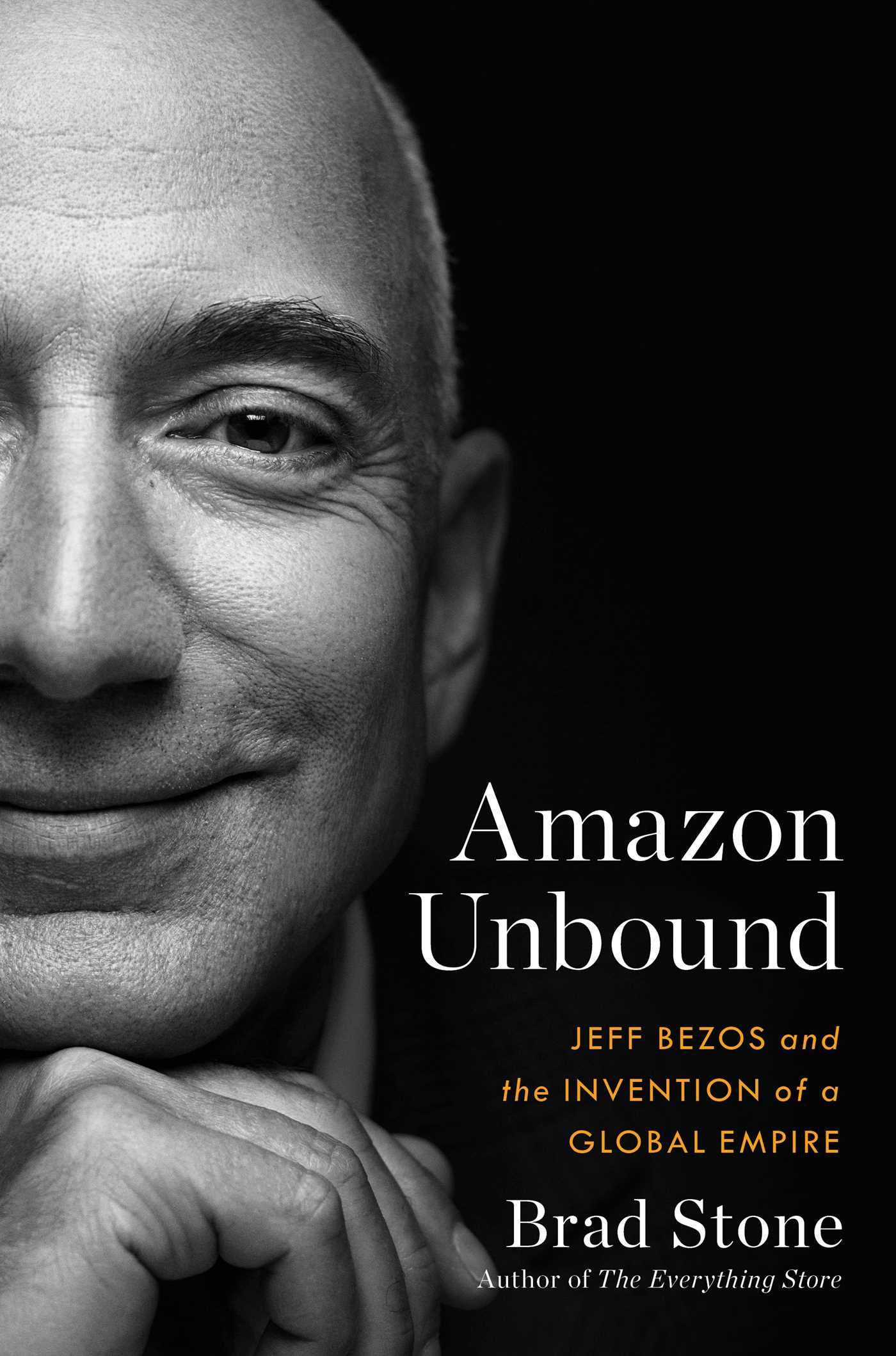
Amazon Unbound
Brad Stone
Almost ten years ago, Bloomberg journalist Brad Stone captured the rise of Amazon in his bestseller The Everything Store. Since then, Amazon has expanded exponentially, inventing novel products like Alexa and disrupting countless industries, while its workforce has quintupled in size and its valuation has soared to well over a trillion dollars. Jeff Bezos’s empire, once housed in a garage, now spans the globe. Between services like Whole Foods, Prime Video, and Amazon’s cloud computing unit, AWS, plus Bezos’s ownership of The Washington Post, it’s impossible to go a day without encountering its impact. We live in a world run, supplied, and controlled by Amazon and its iconoclast founder. In Amazon Unbound, Brad Stone presents a deeply reported, vividly drawn portrait of how a retail upstart became one of the most powerful and feared entities in the global economy. Stone also probes the evolution of Bezos himself—who started as a geeky technologist totally devoted to building Amazon, but who transformed to become a fit, disciplined billionaire with global ambitions; who ruled Amazon with an iron fist, even as he found his personal life splashed over the tabloids.
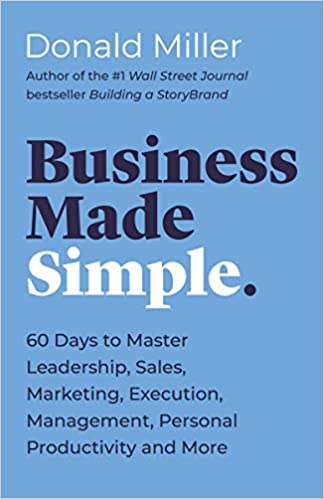
Business Made Simple: 60 Days to Master Leadership, Sales, Marketing, Execution, Management, Personal Productivity and More
Donald Miller
Is this blue book more valuable than a business degree? Most people enter their professional careers not understanding how to grow a business. At times, this makes them feel lost, or worse, like a fraud pretending to know what they're doing. It's hard to be successful without a clear understanding of how business works. These 60 daily readings are crucial for any professional or business owner who wants to take their career to the next level. New York Times and Wall Street Journal bestselling author, Donald Miller knows that business is more than just a good idea made profitable - it's a system of unspoken rules, rarely taught by MBA schools. If you are attempting to profitably grow your business or career, you need elite business knowledge--knowledge that creates tangible value. Even if you had the time, access, or money to attend a Top 20 business school, you would still be missing the practical knowledge that propels the best and brightest forward. However, there is another way to achieve this insider skill development, which can both drastically improve your career earnings and the satisfaction of achieving your goals. Donald Miller learned how to rise to the top using the principles he shares in this book. He wrote Business Made Simple to teach others what it takes to grow your career and create a company that is healthy and profitable. These short, daily entries and accompanying videos will add enormous value to your business and the organization you work for. In this sixty-day guide, readers will be introduced to the nine areas where truly successful leaders and their businesses excel: Character: What kind of person succeeds in business? Leadership: How do you unite a team around a mission? Personal Productivity: How can you get more done in less time? Messaging: Why aren't customers paying more attention? Marketing: How do I build a sales funnel? Business Strategy: How does a business really work? Execution: How can we get things done? Sales: How do I close more sales? Management: What does a good manager do? Business Made Simple is the must-have guide for anyone who feels lost or overwhelmed by the modern business climate, even if they attended business school. Learn what the most successful business leaders have known for years through the simple but effective secrets shared in these pages. Take things further: If you want to be worth more as a business professional, read each daily entry and follow along with the free videos that will be sent to you after you buy the book.
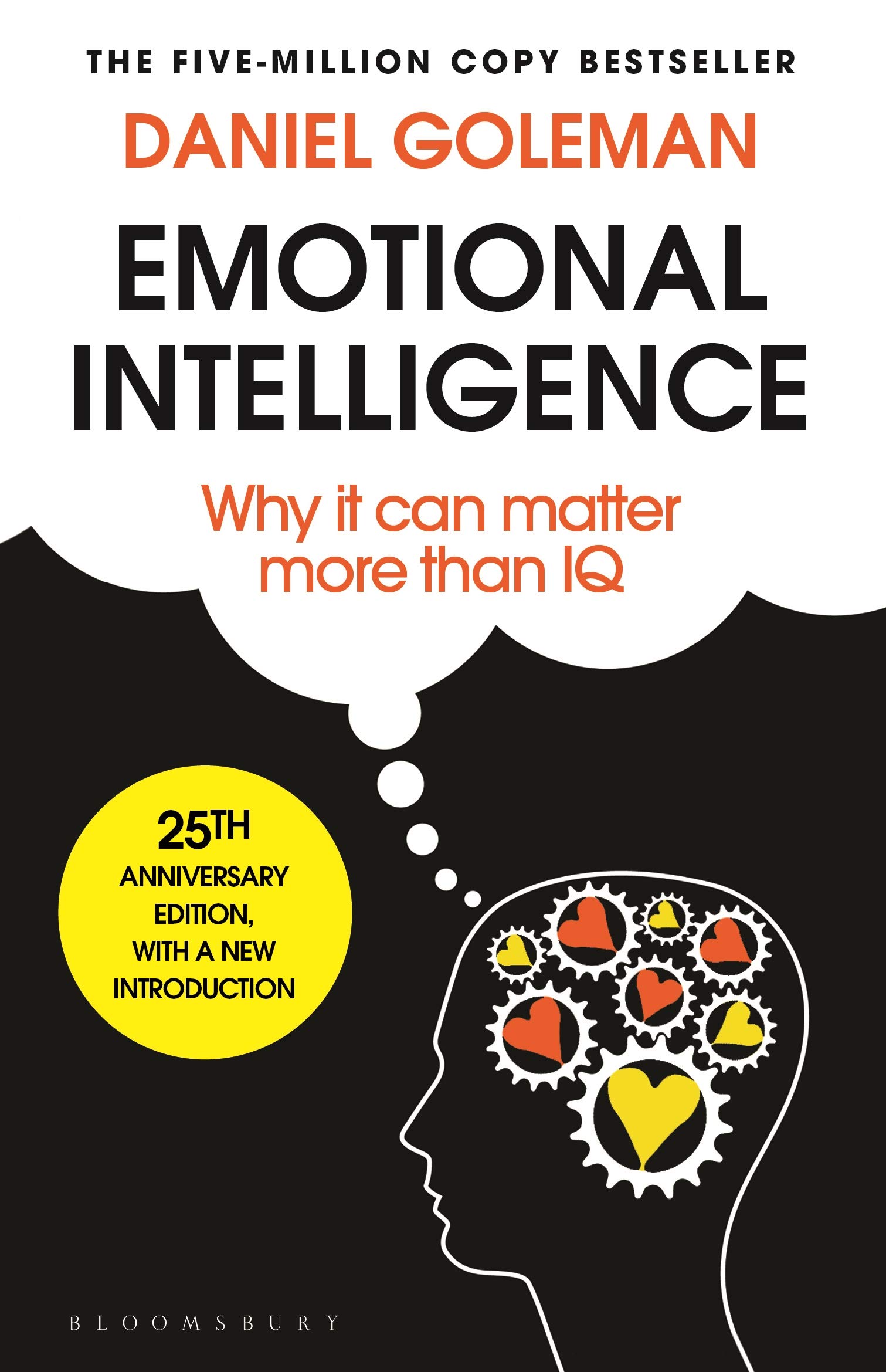
Emotional Intelligence: Why It Can Matter More Than IQ
Daniel Goleman
A 25th anniversary edition of the number one, multi-million copy international bestseller that taught us how emotional intelligence is more important than IQ - 'a revolutionary, paradigm-shattering idea' (Harvard Business Review) Featuring a new foreword from the author A 25th anniversary edition of the number one, multi-million copy international bestseller that taught us how emotional intelligence is more important than IQ - 'a revolutionary, paradigm-shattering idea' (Harvard Business Review) Featuring a new introduction from the author Does IQ define our destiny? In his groundbreaking bestseller, Daniel Goleman argues that our view of human intelligence is far too narrow. It is not our IQ, but our emotional intelligence that plays a major role in thought, decision-making and individual success. Self-awareness, impulse control, persistence, motivation, empathy and social deftness- all are qualities that mark people who excel, whose relationships flourish, who can navigate difficult conversations, who become stars in the workplace. With new insights into the brain architecture underlying emotion and rationality, Goleman shows precisely how emotional intelligence can be nurtured and strengthened in all of us.
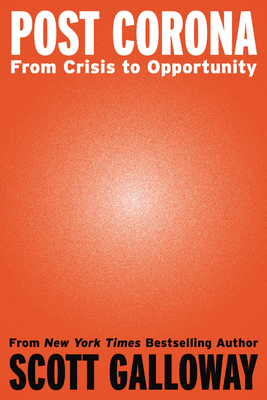
Post Corona: From Crisis to Opportunity
Scott Galloway
The COVID-19 outbreak has turned bedrooms into offices, pitted young against old, and widened the gaps between rich and poor, red and blue, the mask wearers and the mask haters. Some businesses--like home exercise company Peloton, video conference software maker Zoom, and Amazon--woke up to find themselves crushed under an avalanche of consumer demand. Others--like the restaurant, travel, hospitality, and live entertainment industries--scrambled to escape obliteration. But as Scott Galloway argues, the pandemic has not been a change agent so much as an accelerant of trends already well underway. In Post Corona, he outlines the contours of the crisis and the opportunities that lie ahead. Some businesses, like the powerful tech monopolies, will thrive as a result of the disruption. Other industries, like higher education, will struggle to maintain a value proposition that no longer makes sense when we can't stand shoulder to shoulder. And the pandemic has accelerated deeper trends in government and society, exposing a widening gap between our vision of America as a land of opportunity, and the troubling realities of our declining wellbeing. Combining his signature humor and brash style with sharp business insights and the occasional dose of righteous anger, Galloway offers both warning and hope in equal measure. As he writes, Our commonwealth didn't just happen, it was shaped. We chose this path--no trend is permanent and can't be made worse or corrected.
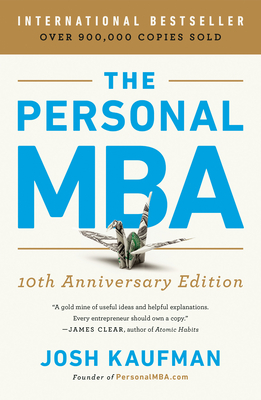
The Personal MBA
Josh Kaufman
The 10th anniversary edition of the bestselling foundational business training manual for ambitious readers, featuring new concepts and mental models: updated, expanded, and revised. Many people assume they need to attend business school to learn how to build a successful business or advance in their career. That's not true. The vast majority of modern business practice requires little more than common sense, simple arithmetic, and knowledge of a few very important ideas and principles. The Personal MBA 10th Anniversary Edition provides a clear overview of the essentials of every major business topic: entrepreneurship, product development, marketing, sales, negotiation, accounting, finance, productivity, communication, psychology, leadership, systems design, analysis, and operations management...all in one comprehensive volume. Inside you'll learn concepts such as: - The 5 Parts of Every Business You can understand and improve any business, large or small, by focusing on five fundamental topics. - The 12 Forms of Value Products and services are only two of the twelve ways you can create value for your customers. - 4 Methods to Increase Revenue There are only four ways for a business to bring in more money. Do you know what they are? Business degrees are often a poor investment, but business skills are always useful, no matter how you acquire them. The Personal MBA will help you do great work, make good decisions, and take full advantage of your skills, abilities, and available opportunities--no matter what you do (or would like to do) for a living.
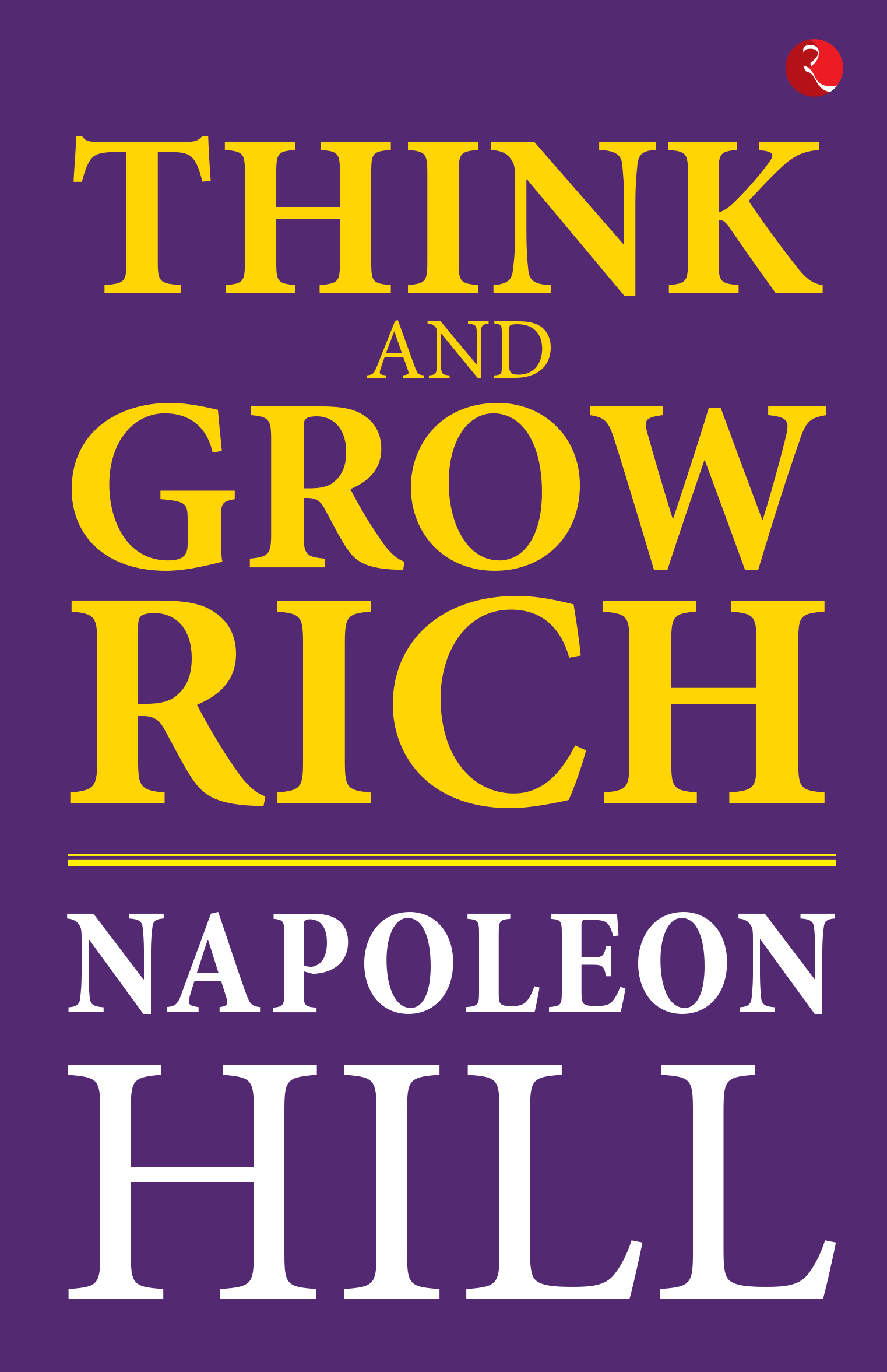
THINK AND GROW RICH
Napoleon Hill
Since its publication in 1937, Napoleon Hill’s seminal Think and Grow Rich has inspired generations of readers to develop their skills and become masters at anything to do. Inspired by Andrew Carnegie himself, Hill’s easy-to-follow guidebook to success is based on thirteen simple ‘steps’: 1. Desire 2. Faith 3. Autosuggestion 4. Specialized Knowledge 5. Imagination 6. Organized Planning 7. Decision 8. Persistence 9. Power of the Master Mind 10. The Mystery of Sex Transmutation 11. The Subconscious Mind 12. The Brain 13. The Sixth Sense Through a mixture of sound advice, income management methods, and personal anecdotes, Hill delivers the ultimate motivational message in Think and Grow Rich—and probably the only one you’ll ever need. Discover for yourself what makes this guidebook to better living one of the bestselling books of all time!
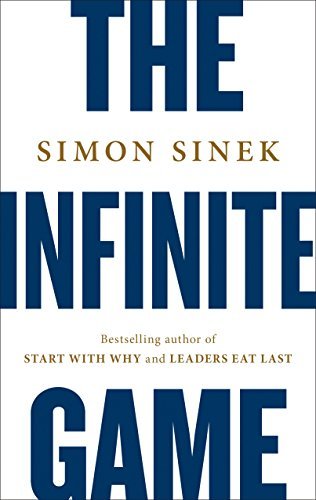
The Infinite Game
Simon Sinek
The New York Times-bestselling author of Start With Why, Leaders Eat Last, and Together Is Better offers a bold new approach to business strategy by asking one question: are you playing the finite game or the infinite game? In The Infinite Game, Sinek applies game theory to explore how great businesses achieve long-lasting success. He finds that building long-term value and healthy, enduring growth - that playing the infinite game - is the only thing that matters to your business.
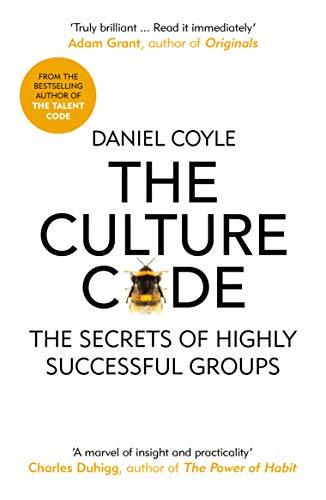
Culture Code
Daniel Coyle
The Culture Code reveals the secrets of some of the best teams in the world – from Pixar to Google to US Navy SEALs – explaining the three skills such groups have mastered in order to generate trust and a willingness to collaborate. Combining cutting-edge science, on-the-ground insight and practical ideas for action, it offers a roadmap for creating an environment where innovation flourishes, problems get solved, and expectations are exceeded.